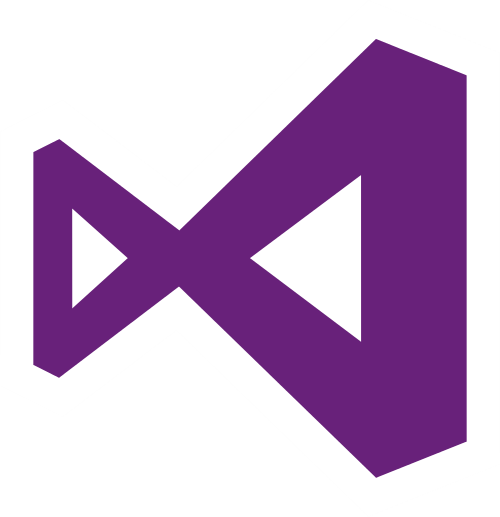This project is aimed to help the user further study C# with a test-driven approach. Each unit contains an annotated tutorial and a platform where you can test your understanding of the topic.
Topics:
- Fundamentals
- Classes and Objects
- Primitive Types
- Types
- Events
- Access Modifiers
- Arrays
- Boxing
- Exceptions
- Loops
- Methods
- Operators
- Value Types
- Garbage Collection
- Threads
- Reflection
- COM Interop
- PInvoke
- Generics
using System; //Use 'using' keyword to tell the compiler that you are using the 'System' namespace
namespace Fundamentals //'namespace' is a special keyword that allows to separate the code in a meaninful manner
{
class LearnThisFirst //Every single time you want to execute code, it needs to be inside of a Type, in this case, a Class
{
static void Main() //The 'Main' method that will execute first when running a console application
{
//Every Object you work with, has a type, in this case, it is a System.Int type, which we use the keyword 'int' to represent it
int firstType = 3; //Your first Type
Console.WriteLine("Hello World"); //Your first statement, this will output to console 'Hello World'
int sum = 3 + 3;// '3+3' is an expression statement since it evaluates and creates a value
/*When writting Console Applications, you can use 'Console.ReadLine()' statement to wait for User Input,
then the CMD Window won't automatically close*/
Console.ReadLine(); [TestMethod]
[ExpectedException(typeof(OutOfMemoryException))]
public void OutOfMemory()
{
var csharpList = new List<CsharpClass>();
for (var i = 0; i < 9000000; i++) //We increment the number of loops to create an OutOfMemoryException
{
var csharp = new CsharpClass(i.ToString(CultureInfo.InvariantCulture));
csharpList.Add(csharp);
}
//Performance is affected severely and program will never reach this point *On most commercial machines
Assert.IsTrue(GetTotalCollections() < 403);
}
private static int GetTotalCollections() //How many GB collections ran in all generations
{
// 0 - When we first create an object, the references are placed in generation zero
// 1 - If reference survives when the generatrion zero collection is placed, then the reference is placed on generation 1
// 2 - If the references survive a collection on pass 1, they will be placed on generation 2
return GC.CollectionCount(0) + GC.CollectionCount(1) + GC.CollectionCount(2); //We need to print the 3 generations of Garbage Collection
} [TestMethod]
public void DefaultKeyword() //The default keyword is used in a context where you do not know the Type at runtime
{
// default of Referenece Types is Null
Assert.IsNull(ReturnDefault<ImplementsIDisposable>());
// default of Value Numeric types is generally 0
Assert.IsTrue(ReturnDefault<int>() == 0);
}
private static object CreateDisposer(Type type)
{
var implementsIDisposableType = typeof (Disposer<>); //This is an unbound generic type
return Activator.CreateInstance(implementsIDisposableType.MakeGenericType(type)); //We get the type at runtime via the Type parameter
}
//You can specify the T of the returned value
private static Disposer<T> CreateDisposer<T>() where T : IDisposable //You can create Generic methods as well, with the same constrains as the class
{
var implementsIDisposableType = typeof(Disposer<>);
return Activator.CreateInstance(implementsIDisposableType.MakeGenericType(typeof(T))) as Disposer<T>; //We get the type at runtime via the T Type
}
private static T ReturnDefault<T>()
{
return default(T);//This could be null or 0 *for most Int types
}
}
}
internal class Disposer<TDisposer> where TDisposer : IDisposable // You can set conditions on the Generic Type in order to perform more activities with the given instance at runtime
{
public bool Dispose(TDisposer item)
{
item.Dispose();
return true;
}
}
internal class ImplementsIDisposable : IDisposable //This is a class that implements IDisposable
{
public void Dispose() //This gets executed at runtime by the Disposer Class
{
}
}In this example we explain the use of Reflection and how to dynamically create code using C# / .Net
[TestMethod]
public void DynamicallyCreatingCode()
{ //The method ‘GetMethod’ extracts the method information from Debug.Writeline
var methodInfo = typeof(Debug).GetMethod("WriteLine", new[] { typeof(string) });
//We can specify the method signature by using a type of DynamicMethod
var dynamicMethod = new DynamicMethod("DynamicMethod", typeof(void), new Type[] { });
//We use 'GetILGenerator()' in order to create IL statements
var ilGenerator = dynamicMethod.GetILGenerator();
/*We use MS Intermediate Language calls to load the required information*/
ilGenerator.Emit(OpCodes.Ldstr, "Test Dynamic Method");
ilGenerator.Emit(OpCodes.Call, methodInfo);
ilGenerator.Emit(OpCodes.Ret);//Return statement
//We can create dynamic delegates and execute our method
var action = (Action)dynamicMethod.CreateDelegate(typeof(Action));
action();//Prints in Debug Console
//This statement verifies that the action was created at runtime
Assert.AreEqual(action.GetType(), typeof(Action));
}All Unit Tests are passing, you can modify the content of the tests in order to try different combinations or concepts.
















